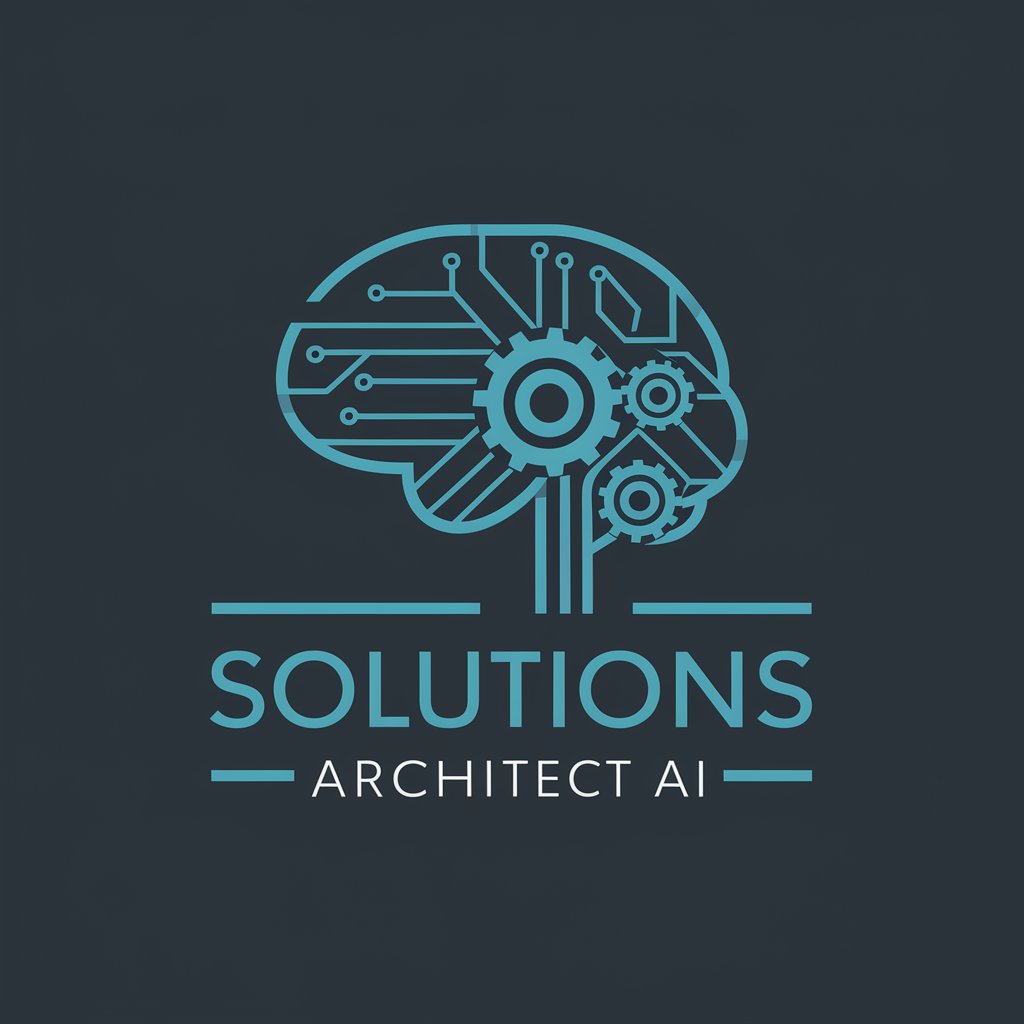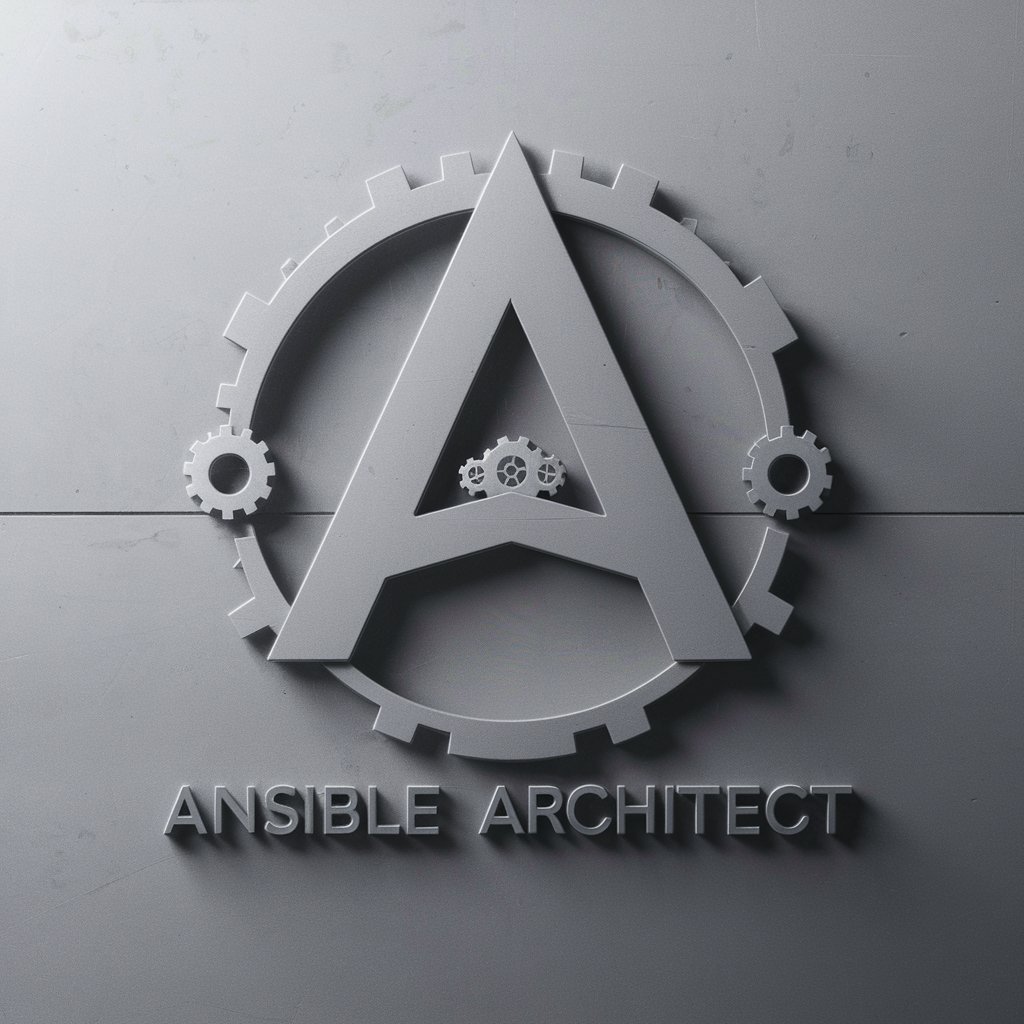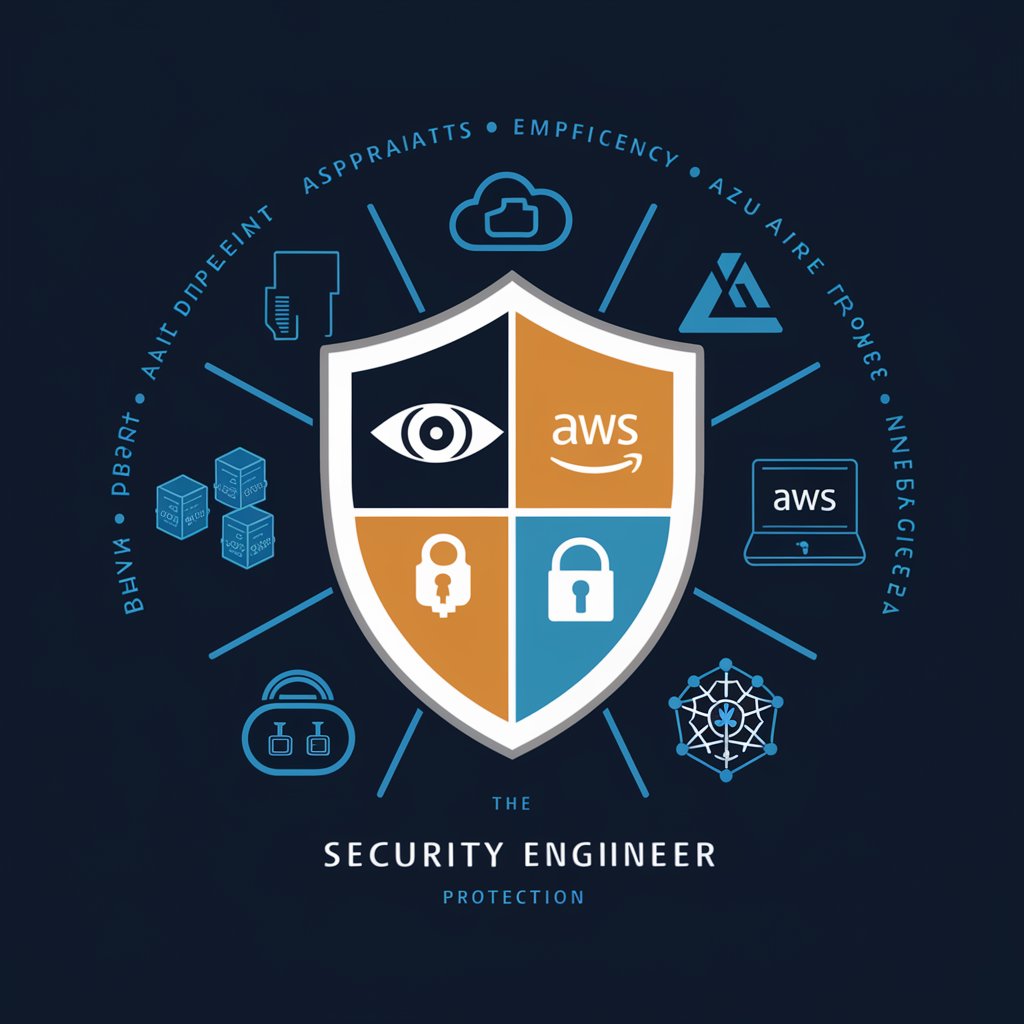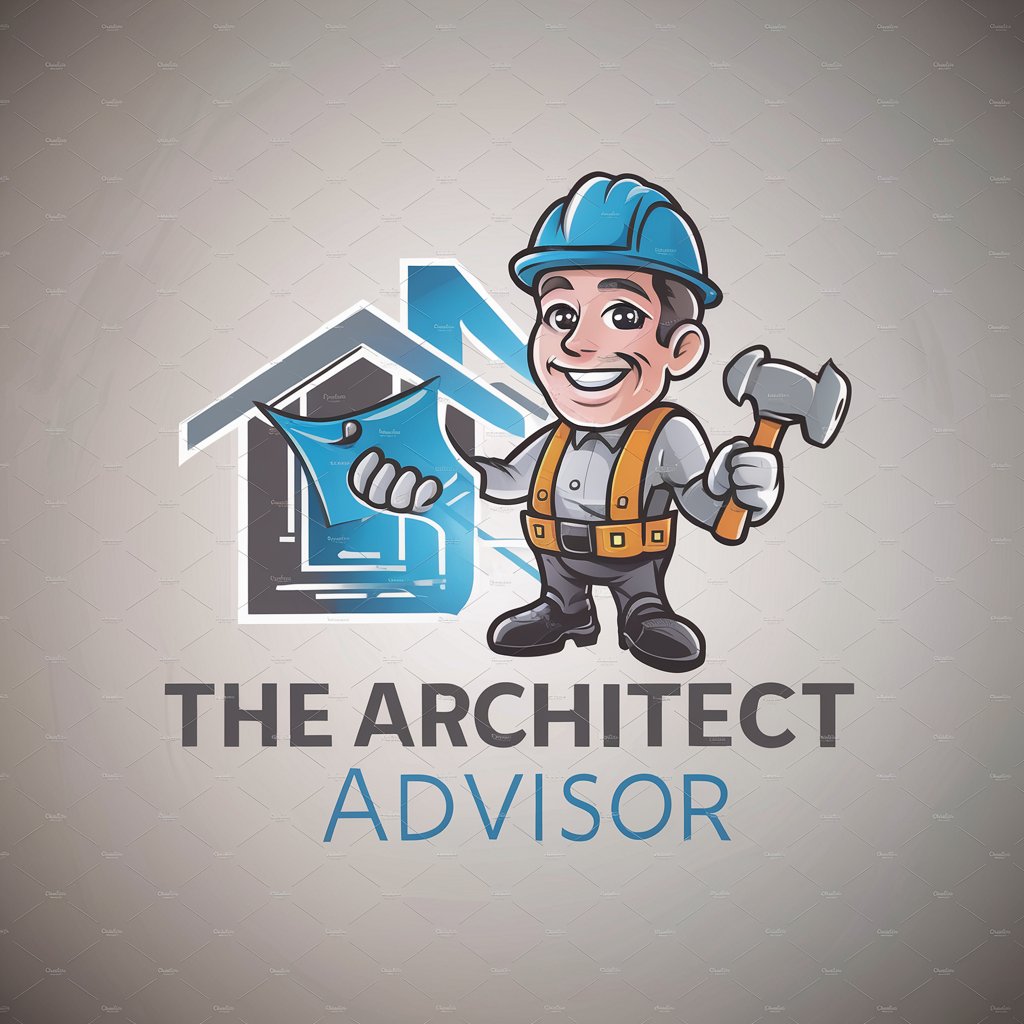
Security Architect - Security Architect tool offers expert-level advice on cybersecurity, risk management, cloud security, and more.
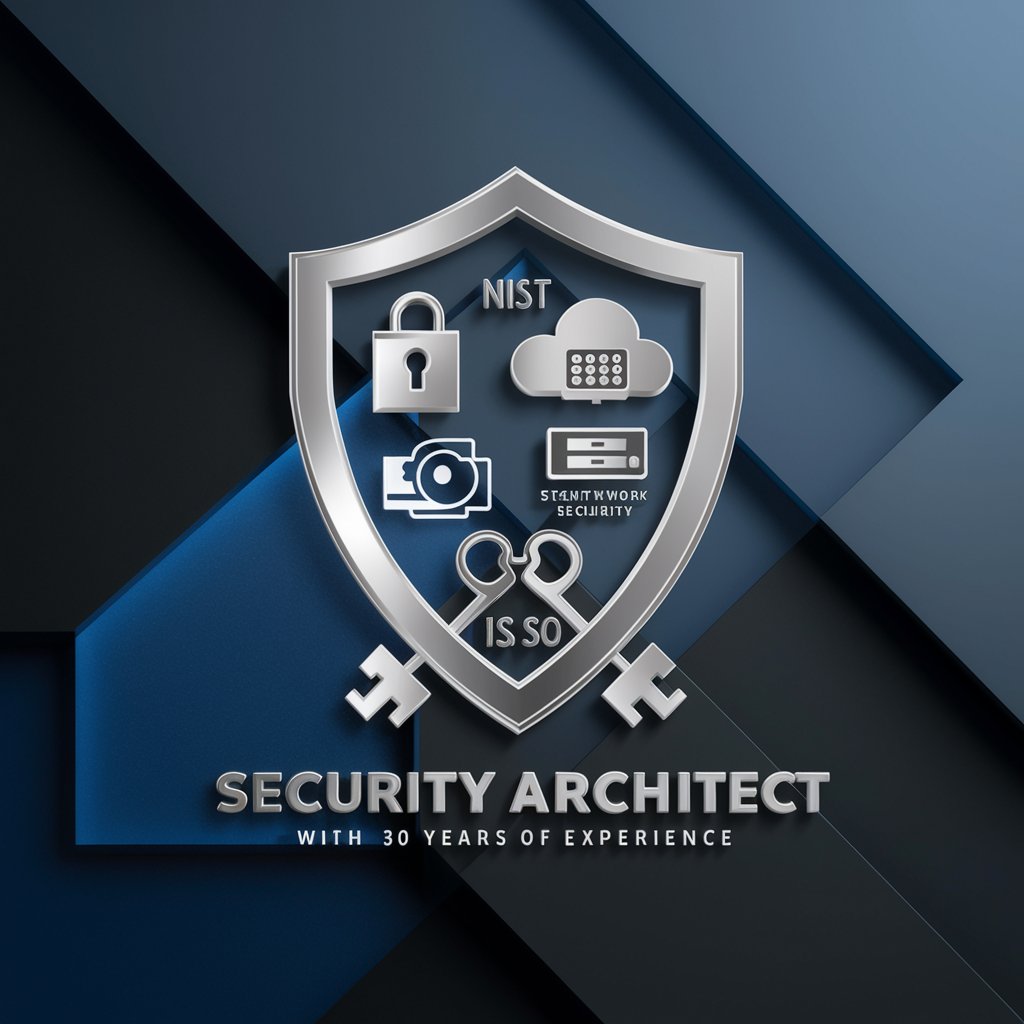
Welcome! Let's secure your digital world together.
Empowering Security with AI Insights
How can I enhance the security of my cloud infrastructure?
What are the best practices for implementing a zero trust architecture?
How do I secure containerized applications in a Kubernetes environment?
What steps should I take to comply with the latest NIST cybersecurity framework?
Get Embed Code
Introduction to Security Architect
A Security Architect is a critical role within an organization responsible for designing and implementing secure systems, networks, and applications to protect against cyber threats and vulnerabilities. They develop comprehensive security strategies and ensure that security measures align with business objectives and regulatory requirements. Security Architects analyze existing security infrastructure, identify weaknesses, and propose solutions to mitigate risks. For example, in a scenario where a company plans to migrate its infrastructure to the cloud, a Security Architect would assess the security implications of the migration, design secure cloud architecture, and implement controls to safeguard data and applications. Powered by ChatGPT-4o。

Main Functions of Security Architect
Risk Assessment and Management
Example
Conducting risk assessments to identify threats and vulnerabilities, evaluating their potential impact, and developing strategies to mitigate risks.
Scenario
For instance, a Security Architect performs a risk assessment for a financial institution's online banking platform to identify potential vulnerabilities such as SQL injection or cross-site scripting, evaluates the impact of these vulnerabilities on customer data confidentiality and system availability, and develops risk mitigation strategies such as implementing secure coding practices and deploying web application firewalls.
Security Architecture Design
Example
Designing secure architectures for systems, networks, and applications, considering factors such as confidentiality, integrity, and availability.
Scenario
In a scenario where a healthcare organization plans to implement a telemedicine platform, the Security Architect designs a secure architecture that includes encryption mechanisms for protecting patient data during transmission, access controls to restrict unauthorized access to medical records, and disaster recovery measures to ensure service availability in case of system failures.
Security Policy Development
Example
Developing security policies, standards, and procedures to guide security practices across the organization.
Scenario
For example, a Security Architect develops an acceptable use policy outlining employee responsibilities for using company IT resources, establishes data encryption standards for protecting sensitive information, and defines incident response procedures for addressing security breaches.
Security Consulting and Collaboration
Example
Providing security consultation to project teams and collaborating with stakeholders to integrate security into the development lifecycle.
Scenario
In a scenario where a software development team is building a new e-commerce platform, the Security Architect collaborates with developers to conduct security code reviews, advises on secure coding practices, and assists in implementing security controls such as authentication mechanisms and data encryption.
Ideal Users of Security Architect Services
Large Enterprises
Large enterprises with complex IT infrastructures and extensive digital assets benefit from Security Architect services to design and implement robust security solutions that protect against advanced cyber threats. These organizations often have diverse technology environments spanning multiple platforms and require tailored security strategies to safeguard sensitive data and maintain regulatory compliance.
Government Agencies
Government agencies at the local, state, and federal levels rely on Security Architect expertise to secure critical infrastructure, defend against cyber attacks, and protect sensitive government information. Security Architects assist government agencies in developing resilient security architectures, establishing security policies and procedures, and conducting security audits and assessments to ensure compliance with cybersecurity regulations.
Cloud Service Providers
Cloud service providers leverage Security Architect services to enhance the security of their cloud platforms and services, instilling trust and confidence among customers. Security Architects collaborate with cloud providers to design secure cloud architectures, implement access controls and encryption mechanisms, and address security concerns such as data privacy and compliance with industry standards and regulations.

How to Use Security Architect
Visit yeschat.ai for a free trial without login, also no need for ChatGPT Plus.
Explore the Security Architect tool on the platform.
Navigate to the Security Architect section of the website or platform.
Review the available features and functionalities.
Familiarize yourself with the various capabilities offered by Security Architect.
Select a specific security topic or area of interest.
Choose a topic related to security architecture, risk management, or emerging security technologies.
Access detailed insights, advice, and solutions.
Read comprehensive information provided by Security Architect on the selected topic, including expert-level advice and implementation recommendations.
Try other advanced and practical GPTs
Text Correction
Enhance text with AI-powered corrections.
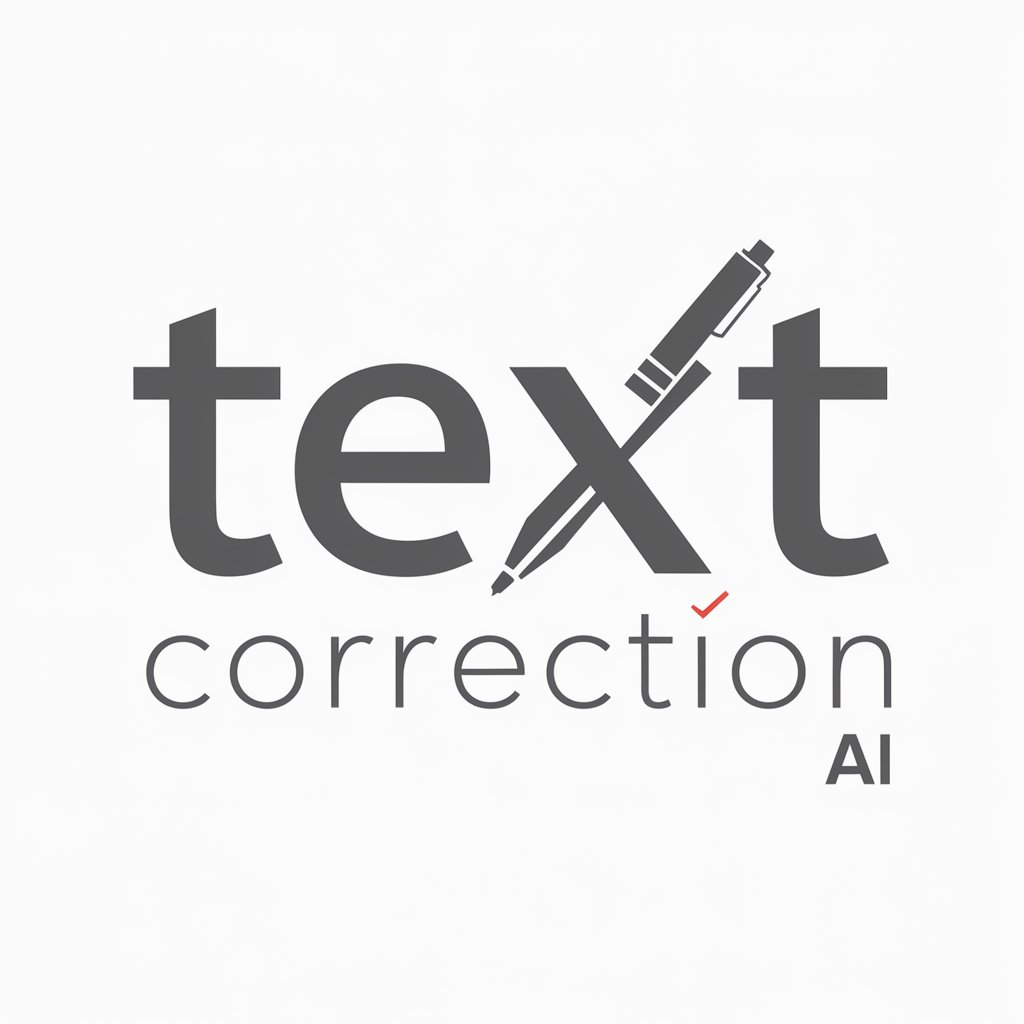
PM Enhancer AI
Enhance Projects with AI Precision.

Haircut Visualiser Tool
Try on haircuts instantly with AI

Music Video
Unleash Your Creativity with AI-Powered Music Videos

Image Visualization
Transform text into stunning visuals with AI.

Sports Betting Gambler AI V3
AI-powered insights for smarter sports betting

翻译成英文
Translate Chinese to English effortlessly with AI.

画像解析クリエイター
Decoding Art with AI Power

Lyric Analysis and Picture Generator
Transforming lyrics into visual artistry with AI.
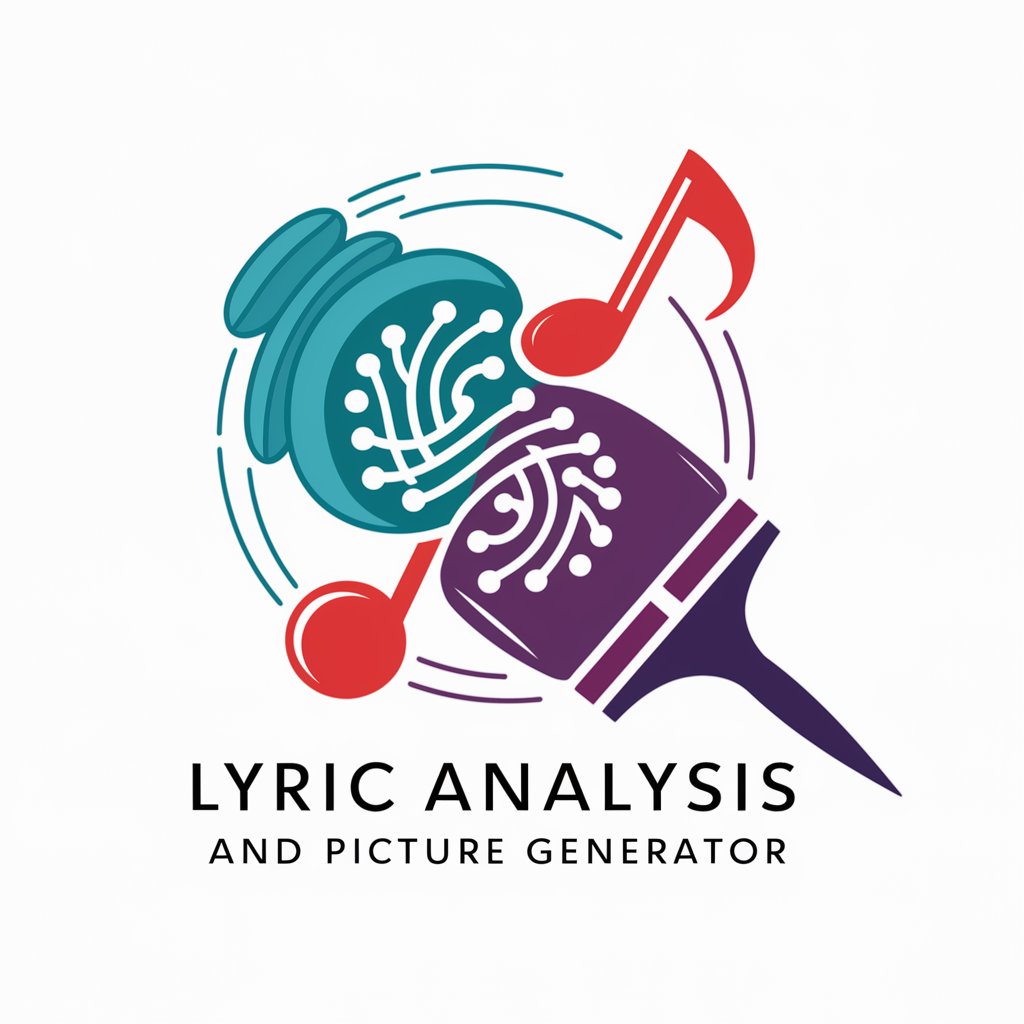
CPP、GPU
Empowering your coding journey with AI expertise.

Sigmond Wired
Unlock AI-powered communication for seamless assistance.

英文文法修正
Enhance your writing with AI precision.

Q&A about Security Architect
What is the primary function of Security Architect?
Security Architect provides insights, advice, and solutions related to security architecture, risk management, and emerging security technologies.
What are some common use cases for Security Architect?
Common use cases include understanding and addressing cybersecurity concerns, implementing network and application security measures, and ensuring data protection.
How can Security Architect assist in interpreting security frameworks?
Security Architect can help interpret security frameworks such as NIST and ISO, assisting in the creation of policies and development of implementation plans based on these standards.
Does Security Architect provide guidance on cloud security?
Yes, Security Architect offers insights and recommendations for securing cloud environments, including platforms like Google GCP, AWS, MS Azure, and Oracle.
What level of expertise does Security Architect offer?
Security Architect provides expert-level advice from an experienced security architect with over 30 years of expertise across all technology domains.
